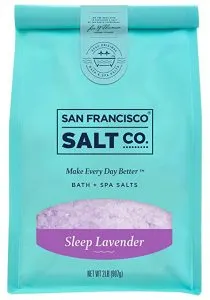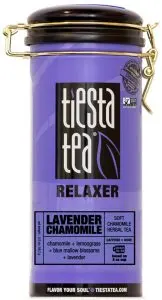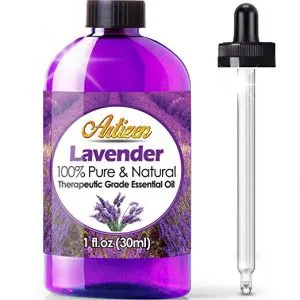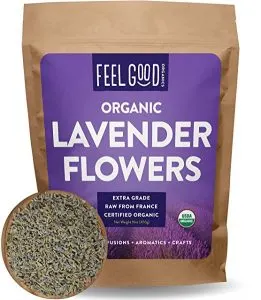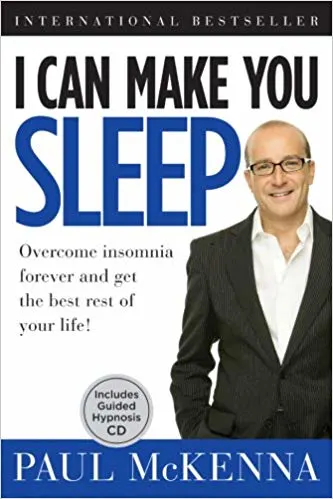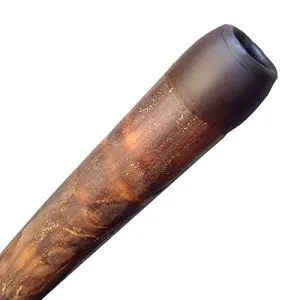There’s nothing worse than getting a bad night’s sleep and for people suffering from sleep apnea, it’s even harder. While many sleep apnea sufferers rely on a CPAP machine to sleep better, I wondered how to cure sleep apnea naturally at home without CPAP.
Sleep Apnea Cures Without a CPAP include positional sleep therapy, losing weight, learning yogic breathing techniques, acupuncture, herbal remedies, giving up tobacco and alcohol, learning how to play a wind instrument and meditation.
Sleep apnea affects upwards of 4% of the population and impacts people of all ages. As we age, sleep apnea starts to affect more and more of the population as much as 20% of those over age 60.
If you experience bouts of uneven breathing that disturbs your sleep during the night or get complaints regarding your frequent loud snoring or wake up with dry mouth or a sore throat, then you just might have sleep apnea.
According to Sleep Standards, inadequate oxygen your body receives can have adverse long-term effects on your health and well-being such as stroke, diabetes, or high blood pressure.
A CPAP machine (continuous positive airway pressure) is most often used to treat obstructive sleep apnea. It involves sleeping with a hose and mask or nosepiece to help you breathe better as you sleep.
The good news is you don’t have to suffer and there are alternatives to wearing a CPAP.
In this post, we’ll get into more about what sleep apnea is as well as treatment options. But we’ll also get into sleep apnea cures without a CPAP. That way you can sleep and breathe easier without being uncomfortably attached to a machine.
Co-authored with Adam Bown, sleep apnea expert over at MattressesGuide.com
What is sleep apnea or obstructive sleep apnea?
The Obstructive Sleep Apnea ( #OSA ) cycle:
#BSWIMR pic.twitter.com/HEjIghK9Mw— John P Erwin III MD✭ (@HeartOTXHeartMD) July 17, 2018
Apnea is a Greek word which means “without breath”.
Sleep apnea simply means “sleeping without breathing”. It is a sleep disorder and it repeatedly interrupts sleep and breathing.
The main types of sleep apnea are:
- obstructive sleep apnea
- central sleep apnea
- complex sleep apnea syndrome
Research data suggests that about half the population of people suffering from sleep apnea are overweight, therefore anyone can have sleep apnea.
But weight loss has been shown to have a positive impact on obstructive sleep apnea in studies done by the National Institutes of Health.
Can Sleep Apnea be cured naturally?
Officially there is not a cure for obsturctive sleep apnea.
What CPAP and other treatments can do is to help sufferers manage their symptoms so that the disruption to sleep is minimal.
It may take trying a number of different treatments to find ones that work best for you, and most likely it will be a combination of treatments that have the best effect rather than just one.
So here, we’re reviewing the most effective ways of managing sleep apnea symptoms using all-natural treatements and techniques.
13 Proven Sleep Apnea Cures Without a CPAP
1. Positional Sleeping Therapy
Your body position during sleep does have considerable effects on sleep apnea.
This therapy is consequently a behavioral strategy used to cure sleep apnea. It is recommended that you sleep on your side as opposed to your back if you have mild sleep apnea.
When sleeping on your back, pressure is exerted on your airway but sleeping on your side will ensure that your throat is open and this makes it easier to breathe.
Pillow height and setting your mattress at an incline are two other major ways to enhance sleep hygiene.
You want to raise your head level, so you can add a few books or blankets under your pillow. You can also add one or two extra pillows to raise your head level to help keep your airways open.
A recent study by the National Institutes of Health found that (head of bed elevation) “significantly improves OSA severity without interfering in sleep architecture and therefore is a simple alternative treatment to (improve) OSA (obstructive sleep apnea).”
No need to buy a new mattress to add an incline to your sleep!
Get the top-rated Wedge Pillow (click to see the top-rated one on Amazon Prime).
Breathable, washable and made of super-comfy memory foam. Almost 5 stars and well over 600 reviews can’t be wrong. See if the studies are right and if this just might be one of the sleep apnea cures without a CPAP that works for you!
2. The proven power of sleep hygiene
Proper sleep will go a long way in curing sleep apnea disorder.
Sleep hygiene is a phrase used to describe different practices and habits which make the list of sleep apnea cures without a CPAP.
Also, make sure the bedroom isn’t too hot or too cold and that you avoid screen technology for as much as an hour before bedtime. Research from Harvard shows the blue light emitted by many electronic devices tricks the brain into thinking that it is still daytime. The result is that melatonin is suppressed and the teenager doesn’t feel sleepy.
Beyond that, make sure to get an appropriate amount of time asleep in bed; not too much or little.
Other good sleep hygiene practices include:
- No more than 30 minutes of nap time each day – Short naps of up to 30 minutes can improve mental clarity. But naps do not make up for improper sleep the night before.
- Exercise daily (but not right before bedtime) – Just a few minutes each day of walking, bicycling or other aerobic exercises can have a big impact on sleep quality. Just avoid any strenuous exercise right before bedtime.
- Get plenty of sunshine each day – Vitamin D, which we get from the sun, is essential for our bodies.
- No alcohol or tobacco within an hour of bedtime – Alcohol, and tobacco are stimulants. Therefore you should avoid them right before bedtime as they can impact your ability to fall asleep and stay asleep
- Have a regular and relaxing bedtime routine – Warm showers, good conversation or your favorite book are great ways to slow down your body from a busy day and get relaxed as we prepare for sleep.
- Avoid rich or acidic foods right before bedtime – A big meal filled with rich, fried, fatty or acidic foods can induce heartburn or indigestion. Therefore to ensure it doesn’t disrupt our sleep, avoid these kinds of meals right before bedtime.
Recover from Your Day, Every Night
Make sure you’re sleeping on the best mattress. Bear Mattress has been named the “Best Mattress for Athletes” by Sports Illustrated, Business Insider rated it the “Best Mattress for Back Pain” and Esquire named it the “Best Mattress for Hot Sleepers”.
Come see what the fuss is all about. 100-night sleep trial – if you don’t love it, they’ll come pick it up for a full refund.
Great prices all year, but they often have jaw-dropping sales throughout the year too. Check out all the options at Bear Mattress (click to see their award-winning mattresses on their site).
Recent studies show that Obstructive Sleep Apnea (OSA) might cause changes in the brain that are also seen in individuals with early stage #Alzheimers disease. Visit @Newsweek to learn more: https://t.co/oB78zRQhkD pic.twitter.com/2suv8k1xKI
— Market Street East Lake (@MarketStreetEL) July 19, 2018
3. Weight Loss
Excess weight is a major cause of diverse health issues, sleep apnea included.
While not all sufferers of sleep apnea are overweight, about 50% of those with it are. According to an extensive study by the National Institutes of Health, “Obesity is considered a major risk factor for the development and progression of OSA (obstructive sleep apnea). The prevalence of OSA in obese or severely obese patients is nearly twice that of normal-weight adults.”
Carrying excess weight adds fatty deposits in and around your airways subsequently subjecting your breathing muscles to more pressure, especially when you sleep.
Losing weight is one of the very best of the sleep apnea cures without a CPAP.
The good news is that doesn’t have to mean starving yourself, hours at the gym each day or giving up everything you love. Take a moment and review my Flat Belly After 40 Tips (click to see my article to check them all out) to see just how easy losing weight permanently could be.
4. Yoga Breathing Exercises
These simple breathing exercises will not only help to strengthen, calm and relax your body but also to improve your breathing (click to see my article which guides you step-by-step) at the same time.
The Pranayama technique is utilized to help improve your lung capacity and the amount of oxygen in your body as well.
Increased oxygen equates to less disruption and snoring. For the best results, try these breathing exercises each night for just a few minutes.
5. Herbal Treatments
These natural ingredients are readily available, safer, less invasive and healthier than the prevalent chemical or artificial sleep apnea cures without a CPAP.
Lavender is a soothing herb you can spray on bedsheets, drink in the form of tea or use its oil on the skin.
Over the years, herbal teas have been used to ensure quality refreshing sleep.
If you have an Amazon Prime membership consider these outstanding lavender products which are all between 4 and 5 stars with hundreds of reviews.
Just click the image to check current prices on Amazon Prime.
6. Acupuncture Therapy
According to a research study by the US National Library of Medicine, acupuncture has been shown to be one of the best sleep apnea cures without a CPAP.
It works by stimulating the muscles of the upper airways, which usually collapse due to sleep apnea.
There is little to no pain associated with this process and if you are uncomfortable with needles you can request for acupressure instead. A licensed acupuncturist should be consulted for this therapy.
Find an acupuncturist near you through the National Certification Commission for Acupuncture and Oriental Medicine.
7. Lifestyle Changes (smoking & alcohol)
It goes without saying that smoking does more harm than good to your health.
It could lead to cancer or adversely affect your heart.
Smoking induces sleep apnea by causing inflammation and fluid retention in your chest, throat and upper airway.
While a little alcohol is not harmful, excess alcohol can cause the muscles of your throat to relax, consequently leading to sleep apnea.
Quitting your smoking and limiting alcohol can certainly help sleep apnea without CPAP.
The proven power of better air quality
It doesn’t do much good to talk about sleep apnea cures without a CPAP and breathing better without a quick mention of the huge benefits of HEPA air filters.
A HEPA Air Filter traps harmful particles like pollen, pet dander, pet hair, mold spores, dust mites & tobacco smoke. But it also traps allergens and other solid particles. If you suffer from allergies you may well see relief on that front too.
So check out all the benefits you could see from adding a HEPA Air Filter (click to see my article of top picks) in your house.
— Middle Class Dad (@middleclassdad1) July 19, 2018
8. The best foods to improve sleep quality
The phrase, ‘you are what you eat’ is more than justified by the fact that your health is a reflection of what you eat.
Besides helping to maintain proper weight, some foods ensure that your airways are better kept open thereby allowing you to get proper sleep.
According to another recent study by the National Institutes of Health, the best foods to help improve sleep quality are:
- Almonds & Walnuts
- Turkey
- Kiwi
- Chamomile or Passionflower Tea
- Cherry Juice
- Seafood
- White Rice
While you’re at it, you can also focus on foods to lower your cholesterol too (click to read my top ways). My article details my own journey in lowering my cholesterol without medication.
9. Hypnosis
Hypnosis is another surprising sleep apnea cures without a CPAP
This is a method that helps to improve your subconscious mind-body functions. Researcher & Professor Bjorn Rasch of the University of Fribourg in Switzerland has stated that “hypnosis can be a good thing for promoting sleep”.
Hypnotic self-help CDs for sleep apnea are used when you go to bed to ensure you have a restful sleep.
These CDs teach you methods to regulate your breathing pattern, breathe without blockages, improve your respiratory muscles and wake up with vigor.
Sleep expert Paul McKenna has been featured on the Ellen DeGeneres Show, The View, CBS’s The Early Show, Rachael Ray and more talking about his groundbreaking techniques to help improve sleep.
Now, you can not only get his best-selling book I Can Make You Sleep (click to check current price on Amazon), but it comes with his self-hypnosis CD which you can listen to at bedtime. 4 stars on Amazon and well over 100 reviews tell you this works!
10. Meditation
Meditation is a technique that helps you to focus your thoughts on controlling your breathing.
This procedure helps prepare your mind for a peaceful sleep while also improving your breathing capacity. While some practitioners meditate for long periods of time, start with just 5-10 minutes before bedtime each night.
Find a quiet place & sit cross-legged. Focus on your breath, breathing in slowly through the nose & out through the mouth. Also, keep a strong and upright posture with the crown of your head pointing to the sky.
To dive deeper into how to meditate and the proven benefits it has, check out the Middle Class Dad Meditation post on Lifehack.
11. Playing a Wind Instrument
Believe it or not, the Didgeridoo, a wind instrument, has been proven to be one of the sleep apnea cures without a CPAP.
The didgeridoo is a new and unconventional means of curing sleep apnea. A recent study published by the British Medical Journal shows that the symptoms of sleep apnea “improved significantly” from the use of the didgeridoo.
This method entails inhaling air via your nose while exhaling through your mouth with your tongue and cheeks.
The vibration of your lips produces the droning beat specific to the didgeridoo. Playing this instrument regularly helps treat sleep apnea and it’s terrible symptoms.
Grab your Didgeridoo (click to check current prices on Amazon Prime) for under $30! Hand-fired, Almost 5 stars and hundreds of reviews can’t be wrong!
12. Sleeping on the floor
In recent times, studies have shown that there’s a quantifiable improvement in sleep apnea when you resort to sleeping on the floor.
This is basically because there’s little deformation in your body since you’re sleeping on a straight and less cushioning surface, so your body structure is preserved to allow air to easily flow through your respiratory system. Read more here
Ideally, you can use a floor mattress to sleep. This will help aid your sleep apnea.
13. Sleep Apnea Surgery
It’s not only alternative treatments that help with sleep apnea cures without a CPAP.
Several surgeries exist to combat the problem of sleep apnea.
UPPP (uvulopalatopharyngoplasty), was developed 25 years ago and has become the most commonly performed surgery for sleep apnea. The procedure removes excess tissue from the soft palate & pharynx. A tonsillectomy is typically performed at the same time.
You might want to consult with your doctor in order to decide which procedure would be best for you.
While certainly necessary in some cases, it would certainly be one of the last sleep apnea cures without a CPAP I would try.
What happens if you have sleep apnea and don’t use CPAP?
There are lots of reasons a sleep apnea sufferer might want to temporarily stop using their CPAP.
Those include:
- Going on vacation (and not wanting to bring it)
- Camping
- Having a cold and being too congested
- Just wanting a night off from wearing it
But for someone new to using CPAP, you might be really concerned about what happens with your obstructive sleep apnea if you don’t use CPAP 1 or more nights.
Unlike some medical devices, however, CPAP’s benefits can linger even without immediate use.
CPAP works by reducing the swelling in the airways in the nose and throat. If you’ve been using a CPAP for a while, those areas have probably gone way down in swelling. So the good news is they won’t immediately swell back up just from a temporary stopping of the CPAP treatment.
In fact, it will most likely take several days before your obstructive sleep apnea causes the swelling to return fully.
Has anyone ever died from sleep apnea?
Yes is the short answer. In fact, Carrie Fisher (Princess Leia) is probably the most famous example of someone to officially die from obstructive sleep apnea.
Now that being said, it’s unclear if she was currently seeking treatment at the time of her death or what other risk factors may have been at play given her history drug abuse.
Buy beyond Fisher, people with severe sleep apnea have 3 times the risk of dying compared to people without sleep apnea, according to an extensive study by the American Academy of Sleep Medicine.
In fact, their study ran for 18 years and looked at 1,522 people.
They found that 19% of the people in the study who had severe obstructive sleep apnea died during the 18 years compared to only 4% of study participants who did not have any sleep apnea.
So if you have or suspect you have obstructive sleep apnea, you owe it to yourself and your family to get properly diagnosed and come up with a treatment plan with your doctor.
Can sleep apnea go away by itself?
No is the short answer.
Sleep apnea is considered a chronic condition that does not naturally just go away by itself. That being said, aside from some of these natural treatments and remedies, for kids with sleep apnea, ask your doctor about both a tonsillectomy and adenoidectomy.
Both of those relatively minor procedures have been shown to dramatically reduce the symptoms of sleep apnea and greatly improve the quality of sleep.
Once kids go through puberty, and also adults, the options for treatment increase.
The jaw advancement surgery is a procedure that is considered the most successful, as it has a fantastic 80% success rate.
It does involve surgery where the jawbones are broken, moved, and then held in place with screws. It also changes the look of your face. So it’s not a procedure for everyone or to go into without significant consideration.
But if you’re looking for a permanent solution to obstructive sleep apnea without the use of CPAP, talk to your doctor about this procedure.
Can CPAP cure sleep apnea?
Avoid these things if you have sleep apnea. https://t.co/soSR5GPEhz pic.twitter.com/60Tr5ODGRG
— Bobby Cleveland (@bobbycland) July 19, 2018
CPAP stands for “Continuous Positive Airway Pressure”.
It is a type of therapy that applies mild air pressure to a person’s upper airway to keep their airway open in order to ensure that they breathe normally while sleeping. This is achieved with the aid of a pump and a mask.
Most people who use a CPAP machine do find fast relief from the symptoms of sleep apnea, but it is not a cure.
A cure would mean eliminating the issue. Instead, CPAP users continue to wear the mask nightly to help ensure proper sleep. Most CPAP users do report an increase in energy and alertness during the day.
Side effects are usually minor but can include headaches, nasal congestion, sore eyes, and bloating in the abdomen. Most people become accustomed to CPAP machines in anywhere from 2 weeks to 3 months. Over 50% of patients using a CPAP continue treatment ongoing.
If you’re not using CPAP therapy yet but you want to try it, consult your health-care provider to know if it’s a good treatment option for you. Moreover, a CPAP machine also requires a prescription to buy. Your health-care provider can help you choose the CPAP machine and mask most suited for your specific situation.
However, many people find it difficult to cope with CPAP.
Some of the issues with the CPAP method of treatment are:
- CPAP machines are loud
- The masks can irritate the skin
- They require a significant amount of maintenance
- Patients often find it uncomfortable sleeping with CPAP
Final Thoughts
In this post, we reviewed the challenges of sleep apnea and specifically sleep apnea cures without a CPAP.
After a hard day’s work, sound sleep is required in order to regain lost strength but this becomes an uphill task when you have to battle with sleep apnea.
It is therefore up to you to decide on the best methods to use in order to take charge of your life.
Any tips, suggestions or questions on sleep apnea cures without a CPAP? Feel free to comment here, email me or reach out to Adam directly at his website below.
About the co-author of this post.
Adam Bown is a researcher of Mattress and Sleep products and a sleep apnea expert. He publishes all his research on MattressesGuide.com. He is a family man and loves to pass time with his wife and son. In addition, he also loves to travel, hang out with positive people when he finds the time!
Of course I have to add that neither Adam nor I are doctors or health practitioners. Like all the posts on Middle Class Dad, the opinions here are based on our own experience, observations, and research. If you need a medical professional you should seek out one in your area.
Middle Class Dad is a participant in the Amazon Services LLC Associates Program, an affiliate advertising program designed to provide a means for sites to earn advertising fees by advertising and linking to Amazon.com. As an Amazon Associate, I may earn a small commission from qualifying purchases if you click to Amazon from my site and choose to make a purchase. This is no way increases the cost to you.
- Sagittarius Man & Gemini Woman Love and Sex Compatibility - January 31, 2024
- Taurus Ascendant Rising Personality Traits in Men (Guide) - January 31, 2024
- How to Seduce and Attract a Sagittarius Man (Seduction Tips) - January 31, 2024


